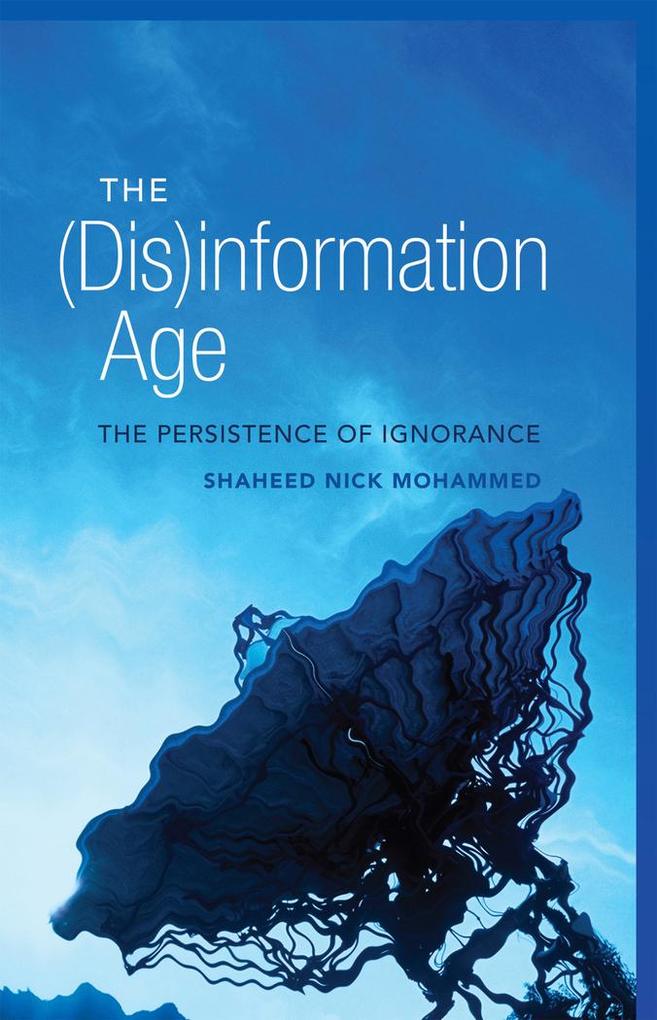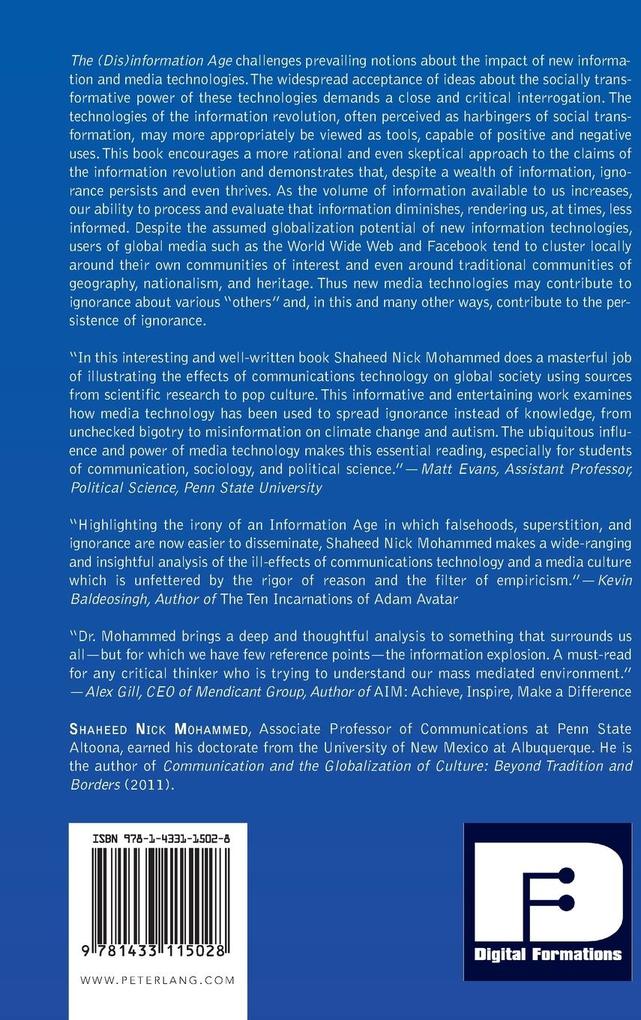
Zustellung: Di, 15.07. - Fr, 18.07.
Versand in 7 Tagen
VersandkostenfreiBestellen & in Filiale abholen:
Digital Formations is the best source for critical, well-written books about digital technologies and modern life. Books in the series break new ground by emphasizing multiple methodological and theoretical approaches to deeply probe the formation and reformation of lived experience as it is refracted through digital interaction. The series examines broad issues in realms such as digital culture, electronic commerce, law, politics and governance, gender, the Internet, race, art, health and medicine, and education.
The (Dis)information Age challenges prevailing notions about the impact of new information and media technologies. The widespread acceptance of ideas about the socially transformative power of these technologies demands a close and critical interrogation. The technologies of the information revolution, often perceived as harbingers of social transformation, may more appropriately be viewed as tools, capable of positive and negative uses. This book encourages a more rational and even skeptical approach to the claims of the information revolution and demonstrates that, despite a wealth of information, ignorance persists and even thrives. As the volume of information available to us increases, our ability to process and evaluate that information diminishes, rendering us, at times, less informed. Despite the assumed globalization potential of new information technologies, users of global media such as the World Wide Web and Facebook tend to cluster locally around their own communities of interest and even around traditional communities of geography, nationalism, and heritage. Thus new media technologies may contribute to ignorance about various «others» and, in this and many other ways, contribute to the persistence of ignorance.
Jetzt reinlesen: Inhaltsverzeichnis(pdf)Produktdetails
Erscheinungsdatum
20. Januar 2012
Sprache
englisch
Auflage
1. Auflage
Seitenanzahl
218
Reihe
Digital Formations
Autor/Autorin
Shaheed Nick Mohammed
Serie hrsg. von
Steve Jones
Verlag/Hersteller
Produktart
gebunden
Gewicht
461 g
Größe (L/B/H)
231/155/16 mm
ISBN
9781433115028
Entdecken Sie mehr
Pressestimmen
«In this interesting and well-written book Shaheed Nick Mohammed does a masterful job of illustrating the effects of communications technology on global society using sources from scientific research to pop culture. This informative and entertaining work examines how media technology has been used to spread ignorance instead of knowledge, from unchecked bigotry to misinformation on climate change and autism. The ubiquitous influence and power of media technology makes this essential reading, especially for students of communication, sociology, and political science.» (Matt Evans, Assistant Professor, Political Science, Penn State University)
«Highlighting the irony of an Information Age in which falsehoods, superstition, and ignorance are now easier to disseminate, Shaheed Nick Mohammed makes a wide-ranging and insightful analysis of the ill-effects of communications technology and a media culture which is unfettered by the rigor of reason and the filter of empiricism.» (Kevin Baldeosingh, Author of `The Ten Incarnations of Adam Avatar )
«Dr. Mohammed brings a deep and thoughtful analysis to something that surrounds us all but for which we have few reference points the information explosion. A must-read for any critical thinker who is trying to understand our mass mediated environment.» (Alex Gill, CEO of Mendicant Group, Author of `AIM: Achieve, Inspire, Make a Difference )
«Highlighting the irony of an Information Age in which falsehoods, superstition, and ignorance are now easier to disseminate, Shaheed Nick Mohammed makes a wide-ranging and insightful analysis of the ill-effects of communications technology and a media culture which is unfettered by the rigor of reason and the filter of empiricism.» (Kevin Baldeosingh, Author of `The Ten Incarnations of Adam Avatar )
«Dr. Mohammed brings a deep and thoughtful analysis to something that surrounds us all but for which we have few reference points the information explosion. A must-read for any critical thinker who is trying to understand our mass mediated environment.» (Alex Gill, CEO of Mendicant Group, Author of `AIM: Achieve, Inspire, Make a Difference )
Bewertungen
0 Bewertungen
Es wurden noch keine Bewertungen abgegeben. Schreiben Sie die erste Bewertung zu "The (Dis)information Age" und helfen Sie damit anderen bei der Kaufentscheidung.










